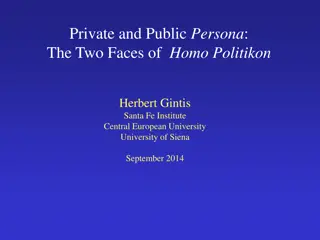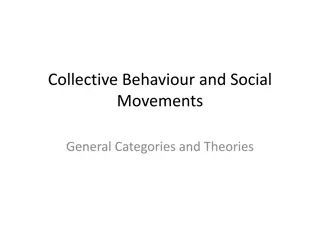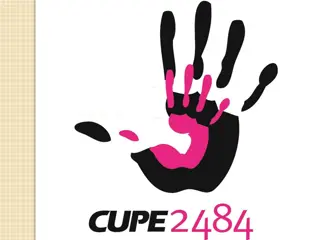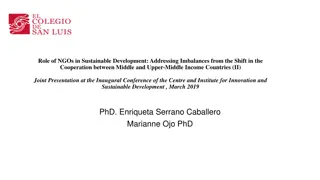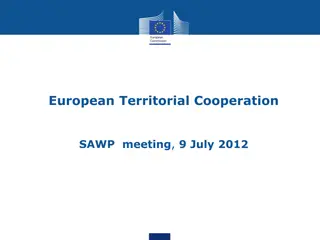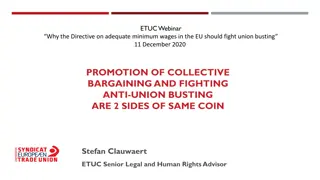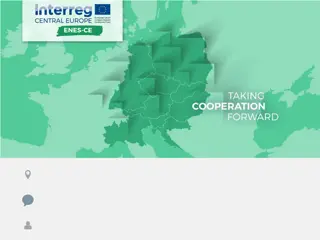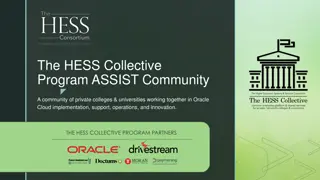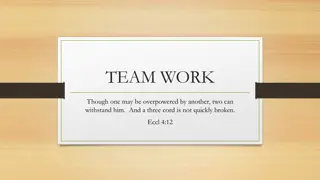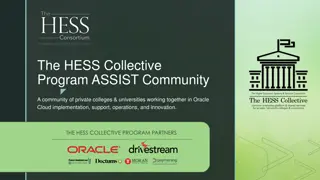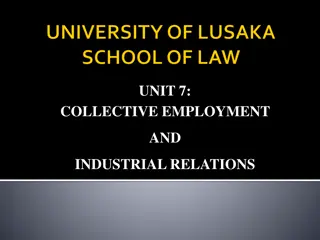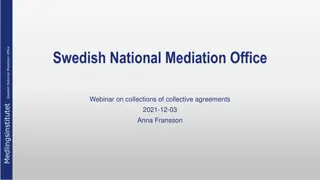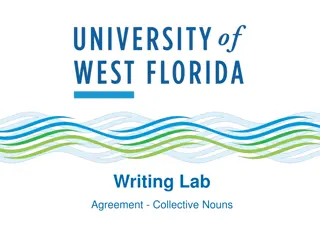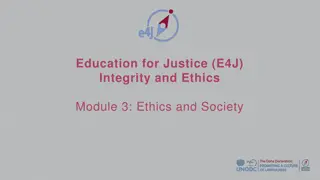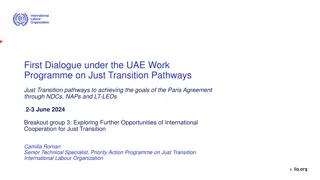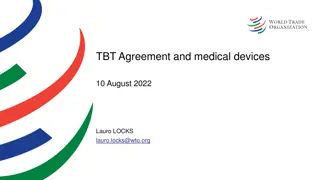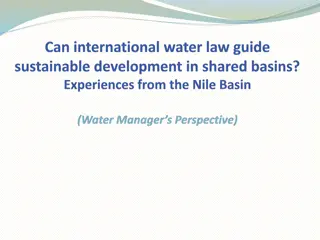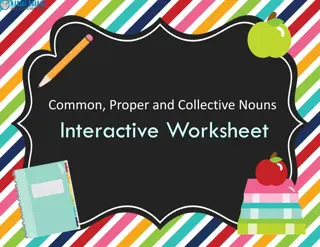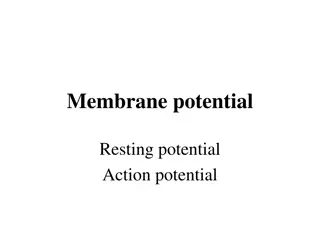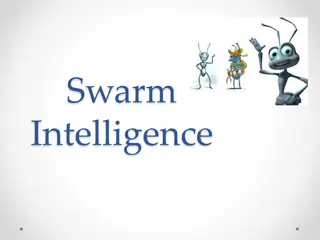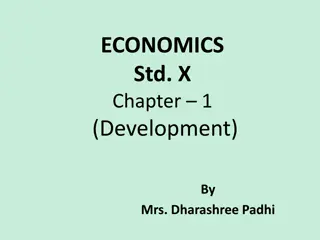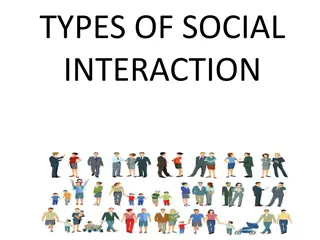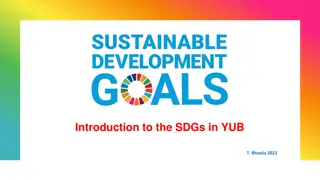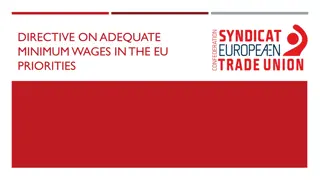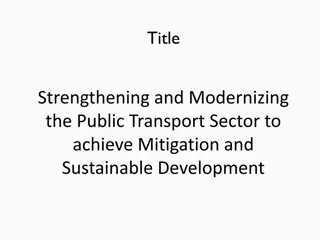Challenges of Cooperation and Collective Action in Achieving Common Goals
Cooperation towards common goals poses challenges due to the nature of public goods, as highlighted through scenarios like draining a shared swamp and government-provided public goods. The dilemma of collective action, illustrated by the Prisoner's Dilemma and lobbying for collective benefits, points out the complexities faced in working together towards shared objectives.
Download Presentation

Please find below an Image/Link to download the presentation.
The content on the website is provided AS IS for your information and personal use only. It may not be sold, licensed, or shared on other websites without obtaining consent from the author. Download presentation by click this link. If you encounter any issues during the download, it is possible that the publisher has removed the file from their server.
E N D
Presentation Transcript
If people share a common goal should/will they cooperate to achieve that goal? Olson common goals are often public goods, nonexcludableand nonrival, for the group that wants to achieve the goal. Even in small groups, cooperation may be difficult to sustain.
Adam's Land David's Land Swamp Pump Pump Adam and David own land on which there is a common swamp. Both would like the swamp drained and each has a pump. Assume that it costs to run the pump and that it would not be worthwhile for either to pump the entire swamp alone but it would be worthwhile if they split the costs. Is it rational for each of them to pump the swamp?
Adam may reason: Suppose David has his pump on then it makes sense for me to keep my pump off and let him do all the work. On the other hand suppose David has his pump off then it makes sense for me to keep my pump off and not do all the work. David reasons similarly. The swamp is not pumped. Prisoner s Dilemma David Adam PumpOn Pump Off Pump On 3,3 -3,5 Pump Off 5,-3 0,0
Government provided public goods such as national defense are provided by coercion. Pay or go to jail. Note that when it works, everyone should willingly vote to be coerced! But no guarantee that coercive authority will provide the public good. Instead Leviathan s controllers may provide private goods for themselves. I Authorize and give up my Right of Governing my selfe, to this Man . . . on this condition, that thou give up thy Right to him . . . This done, the Multitude so united in one Person, is called a COMMON-WEALTH . . . This is the Generation of the great LEVIATHAN. Thomas Hobbes, Leviathan, Ch.17
Bargaining for a higher wage. Colluding for a higher price. Lobbying say for a tariff, farm subsidies or a tax break. All of these are collective (public) goods for the group being benefitted and the logic of collective action holds. We have immediately that all interests will not be equally represented or effective in Washington, DC. E.g. Small groups will be better organized than large groups. The sugar lobby will in some situations be more effective than the taxpayer lobby!
Small numbers Lowers bargaining costs Increases awareness of symmetry Some incentive to provide even without collective action Implication - In small groups with common interests there is accordingly a surprising tendency for the exploitation of the great by the small (LOCA p. 35) Homogeneous groups Repeated interaction Punishment tit for tat Folk theorem Access to selective incentives (exclusion on some aspect, violence) Why is the NPR a successful organization?
Privileged groups (members of this group would gain more from a public good than it would cost them to provide it unilaterally); Intermediate groups (if any member of this group withholds his contribution, it will cause a noticeable decrease in supply of the good, or a noticeable rise in cost to other contributors). Latent groups (any member of this group could withhold his contribution to the public good without causing a noticeable reduction in its supply)
Marx argued that history was the history of the class struggle class rather than individual was the unit of analysis. Problems Do all members of a class e.g. capitalists and laborers--really have the same interest? Even if all members have the same interest does that mean that they will in concert? Karl Marx
Competing interests balance each other by bringing resources and arguments to bear on different sides of important public policy decisions. Groups compete on a more or less level playing field created by the national and state constitutions as well as by laws. As a result, multiple competing interests are believed to create a stable political environment that allows those interests to be represented before the government.
Political scientists had assumed that the interplay of pressure groups was the essence of democracy. Some got their way, others did not. Well, that showed that the first had more members than the second, or members who cared more deeply, or both. So it was right and proper that they should get their way. This classical pluralism both described and celebrated lobbying in a democracy. (McLean 2000: 653) Olson shows that this is not correct some interest groups are easier to organize (e.g. smaller groups with the opportunity of using selective incentives) so the playing field is not level.
Labor unions did not begin in large factories where management and labor were split but in small trades like printing and shoemaking. Higher wage, shorter working hours, working conditions etc. are collective goods from the point of view of the workers. Workers who go on strike when successful all gain but if the workers who go on strike bear the costs of being (potentially) fired losing work etc. Those who remain may be paid more. Small groups, selective incentives more likely to solve this problem.
Logic of collective action does a lot to explain the violence of a labor movement. To be successful union workers must threaten violence to those other workers who would break the strike. A punch in the nose is a selective disincentive for those who don t join the union. Collective action problem wasn t solved until solved by law. Wagner Act made it illegal for company to fire union organizers but also made union membership compulsory if the union organized a majority of the workers.




